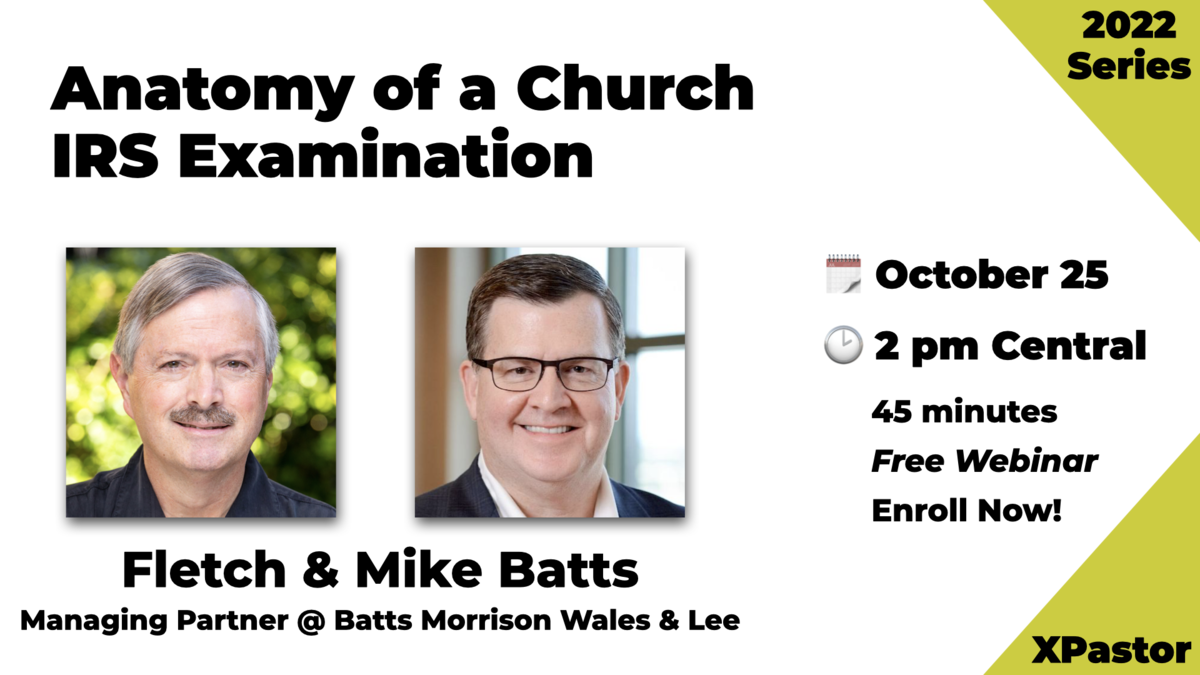“What is more, he (Titus) was chosen by the churches to accompany us as we carry the offering, which we administer in order to honor the Lord himself and to show our eagerness to help. We want to avoid any criticism of the way we administer this liberal gift. For we are taking pains to do what is right, not only in the eyes of the Lord but also in the eyes of men” (2 Cor. 8:19-21).
The purpose of financial reporting is to provide church and ministry leaders with accurate information to evaluate past performance and make decisions about the future. As current ministries are evaluated and new programs considered, financial statements help ministries become more effective in reaching the world for Christ. Accurate financial data, presented in a well-prepared and easy-to-understand format, gives leaders the best tools to assess budget compliance, approve program and departmental changes, and determine raises and appropriate debt. Financial statements also provide the reporting necessary for contributors, creditors, and financial institutions to evaluate the health and progress of the ministry. Finally, accurate financial statements are also helpful if the IRS conducts a tax examination.
Failure to recognize the importance of good financial reporting has caused many ministries to experience unnecessary financial failures, resulting in a poor witness to the contributors and the community. Effective and healthy ministries know the value of good financial records. They take to heart the words of Proverbs 22:1, “A good name is to be more desired than great wealth, Favor is better than silver and gold.”
Creating Effective Financial Statements
Although there are many formats and ways of presenting financial data, Generally Accepted Accounting Principles (GAAP) is a model of reporting usually acknowledged by most financial institutions in the United States. In addition to the format, it is important to consider your audience when preparing financial statements. Different reports need to be created for different groups of people. For example, the finance committee will want a more detailed report than a church congregation. With respect to external reporting to groups such as lenders or other independent organizations, considerably more detailed reports may be required. Care should be taken to present the information that allows for the best interpretation and feedback from the intended audience.
Standard financial reports include various documents. The statement of activity lists the sources of a ministry’s income (e.g., support and revenue) and how the resources were used (expenses). It also provides information on any change to the unrestricted, temporarily, and permanently restricted funds, and the total net assets.
It is also helpful to compare financial statements to the previous year to identify any trends. For example, giving may be gradually decreasing or salary costs may be increasing out of proportion to other expenses. This information could be helpful in making wise decisions when planning for next year’s budget. For non-profit ministries, it is extremely important that general giving and dedicated (restricted) fund giving be posted properly and that restricted funds are always used for the purpose they were intended.
Types of Financial Statements
Generally, there are considered to be four types of financial statements: internal statements, compilations, reviews, and audits. The difference between them is the level of assurance each provides.
Internal statements are prepared in-house by the ministry, either manually or by using a computer software program. Most churches and ministries use some kind of internal statements to evaluate the financial health of their organization. There are several benefits to using these statements. First, they provide a list of income and expenses from which to base financial decisions. They often bring great value by providing a budget-to-actual comparison. Second, as the name implies, the reports are run in-house so there is no need to pay an independent third party to obtain them. As a result, they are usually the least expensive compared to other financial statements. Finally, because the reports are produced in-house, they can be obtained quickly, usually the same day.
However, there are disadvantages with internal statements. One, the reports are only as good as the person entering the information. Care should be taken to make sure the staff member or volunteer entering the data is a trained accountant or bookkeeper. If the people recording the income and expenses are unaware of general accounting principles, information may be entered incorrectly. Furthermore, because an independent, outside party does not review these statements, some will argue that they provide the least amount of confidence regarding their accuracy.
Compilations are prepared by a certified public accountant (CPA). The CPA compiles the information provided by the church in a simple accounting format, usually according to GAAP. The information gathered consists of all financial records such as internal statements, check stubs, and bank statements. Because the data is in a consistent format, it is easy for creditors, donors, and financial institutions to read and understand. A disadvantage of compilations is that the CPA does not verify accuracy of information. Therefore, the CPA will not guarantee the accuracy of the financial information.
Reviews are also prepared by a CPA. To prepare them, the CPA makes inquiries and performs analytical procedures that provide a reasonable basis for expressing limited assurance that the financial statements do not require material modifications to conform with GAAP. The CPA will also use “limited ratio analysis” to determine whether the reports make sense. Reviews are a more extensive report than compilations because the CPA performs some analysis of the statements rather than simply organizing the reports into a simple format. However, the CPA does not confirm information received to the supporting documentation and therefore may not be aware information is missing.
Audits provide the greatest confidence of accuracy because an independent third party provides confirmation of bank accounts, payables, donations, and other financial records. A CPA conducts an on-site examination, performs a third-party confirmation of select transactions, and reviews the financial records with someone from the organization. The examination also includes a review of the organization’s internal control system. Once the audit is complete, the CPA provides a management representation letter that the ministry leader must sign, stating everything is true, correct, and all requested information was presented. This letter provides reasonable assurance that the financial statements are accurate and reliable.
Audits can help a church or ministry avoid potential legal problems, including fraud or embezzlement, and offer suggestions to help improve financial reporting systems, church operations, procedures, and internal controls. However, a disadvantage of an audit is that it is usually the most expensive type of financial statement. Audits can also be time consuming. Since the CPA conducts the audit on-site along with an employee of the church or ministry (usually the bookkeeper or accountant), the employee is taken away from their daily required tasks.
Frequently Asked Questions
I’m looking for a loan. Which type of financial statement will be required from the lender?
Financial statement requirements are generally based on the following:
- Loan size
- Demonstrated ability of management to prepare accurate and useful internal financial statements
- Level of the borrower’s financial complexity
Consider the following scenarios. A small church needs a loan for $500,000 to build additional classroom space. If the internal statements look accurate and make sense, the church may be asked to provide only these documents. On the other hand, a large church, which includes a school, thrift store, and bookstore, wants to build a 5,000-seat auditorium. The church requests a $5 million loan. In this case, the church may be required to provide a review and most likely an audit.
Why must the CPA who prepares financial statements be an independent third party?
Independence means that the CPA is unrelated to the church or ministry and is therefore objective. The CPA has no ties to the church’s leadership or management. The accuracy of the statements can be trusted because the CPA is impartial and recognizes an obligation for fairness.
I have complete confidence in my staff. Is an independent third party still valuable?
An independent third party is for the benefit of an organization and not required because of a lack of trust among staff. With respect to audits, David R. Pollock, author of Business Management in the Local Church, says it best:
“The basis for the audit is not a suspicion of incompetence or wrongdoing, nor should it be looked upon as an indication of distrust or a lack of confidence in those people handling funds. On the contrary, an audit is an honest, objective, and impersonal evaluation of the church’s financial systems and procedures and its financial statements.”
A healthy church or ministry will seek to learn and improve procedures based on the results of an audit. As Proverbs 1:5 says, “A wise man will hear and increase in learning, and a man of understanding will acquire wise counsel.”
Remember, accountability is important. Brian Kluth, president of the Christian Stewardship Association, comments:
“In today’s world, a CPA examining the church’s financial structure is important, for this person can alert the church to problem areas. You don’t want the pastor being the sole arbiter on what is ethical and what is not, and what is legal and what is not. Accountability, especially in relationship to financial resources, is absolutely essential for a healthy church in the twenty-first century.”
Accurate financial statements help ministry leaders make wise decisions regarding vision and mission. The data also provides necessary information to lenders so that they can help meet the organization’s vision and goals. Most importantly, financial statements provide accountability for the resources God entrusts to your ministry. The apostle Paul exhorts us to “ … prove
Additional Resources
Books
Evangelical Joint Accounting Committee. Accounting and Financial Reporting Guide for Christian Ministries, 2001.
Busby, Dan. 2005 Church and Nonprofit Tax & Financial Guide. Zondervan, 2006.
Cobble, James F., Jr. and Richard R. Hammar. Risk Management Handbook for Churches and Schools. Christian Ministry Resources, 2001.
Macchia, Stephen A. Becoming a Healthy Church. Baker Books, 1999.
Pollock, David R. Business Management in the Local Church. Moody Press, 1995.
Websites
National Association of Church Business Administration exists to train, certify, and provide resources for those serving in the field of church administration.
Christian Ministry Resources provides legal, tax, and risk management resources.
Christian Management Association provides management information, leadership training, and strategic networking relationships.
Evangelical Council for Financial Accountability helps Christ-centered organizations earn the public’s trust through developing and maintaining standards of accountability that convey God-honoring ethical practices.
View the original PDF: Financial Statements Matter










